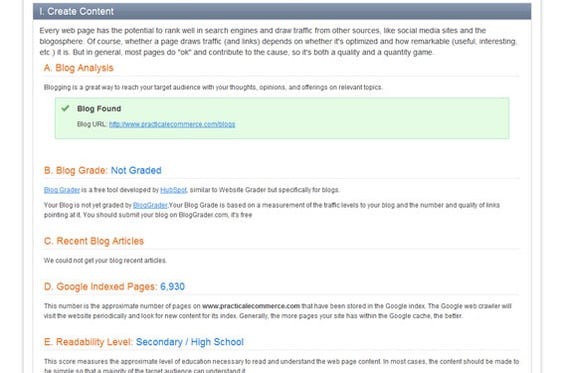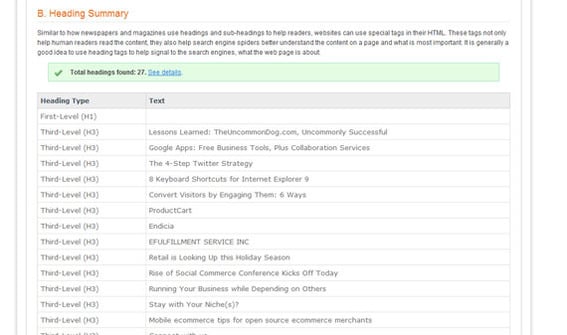A successful ecommerce business is an dynamic blend of products, pricing, operations management, customer service, marketing, and web technology. And an ecommerce entrepreneur or manager must monitor each and every aspect of the business like a circus performer juggling chainsaws.
Thankfully there are many good tools that can help monitor one or several aspects of an online retail operation. One such tool is the free Website Grader from the folks at HubSpot.
Website Grader provides an Internet marketing overview that lets you know how your site is doing in terms of site content, search engine performance, and promotion. Although no individual area of its result set is earth shattering, collectively it can help identify those areas of your site development and marketing that you need to work on, which is why I am awarding Website Grader three out of a possible five stars in this, “The PEC Review.”
“The PEC Review” is my weekly column and video devoted to introducing you to the products or services that I believe will help you improve your ecommerce business. This week, let me show you how I use Website Grader.
Focus On Content
Website Grader first looks at your site’s content, checking for a blog, recent posts, and the number of pages indexed with Google, the reigning king of search engines.

The stat I use most in this section is the one tracking the number of pages Google has indexed. Since I also know—or can easily find out—how many pages I would like to have indexed, I can do a quick comparison.
And remember more is not always better. There may be lots of pages on my site that I don’t want indexed. This stat just helps me keep track.
Monitoring Headings and Meta Data
Website Grader also looks for section and page headings and page meta data. These are two areas that can often be overlooked and that have an impact on how well your site will perform in search engines.
The tool reports the total number of headings and individually lists every heading on the page. This information is particularly helpful for non-technical managers.

And it also looks at areas where you may be missing meta data.
Promotion
In its Promote section, Website Grader looks at how your site is performing on Twitter, Del.icio.us, and Google Buzz. I’d like to see a listing for Facebook too, but the information provided is still a good starting point for revving up some of your social media marketing.
For example, adding more Del.icio.us bookmarks should have a very positive effect on site traffic both from the links and from the PageRank that those links will lend to your site. But for a non-technical manager, finding out just how many Del.icio.us bookmarks you have is much easier on a tool like Website Grader.
Summing Up
 I think of Website Grader as a snapshot of how my sites are doing in several areas. I then select the areas I’d like to improve the most and start working on them. I then check back with Website Grader to learn if I have moved the stats or not.
I think of Website Grader as a snapshot of how my sites are doing in several areas. I then select the areas I’d like to improve the most and start working on them. I then check back with Website Grader to learn if I have moved the stats or not.
In this way, the tool becomes a mechanism for me to test the success some marketing or development action.
I also want to point out that I don’t use Website Grader in a vacuum, but rather alongside other monitor tools. In this context, Website Grader provides a lot of helpful insight, which is why I’ve awarded it three out of a possible five stars in this “The PEC Review.”




